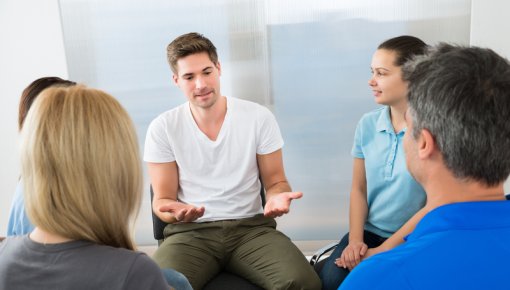I felt like I was different
I had a very good childhood, with a solid and structured family life. But I didn’t have an easy time at school: I was often overexcited and impulsive, and I had trouble concentrating. I was the class clown. And I also skipped class a lot and had to repeat two grades. Another thing that was unusual was that I only needed five hours of sleep each night. After that I was ready to go.

